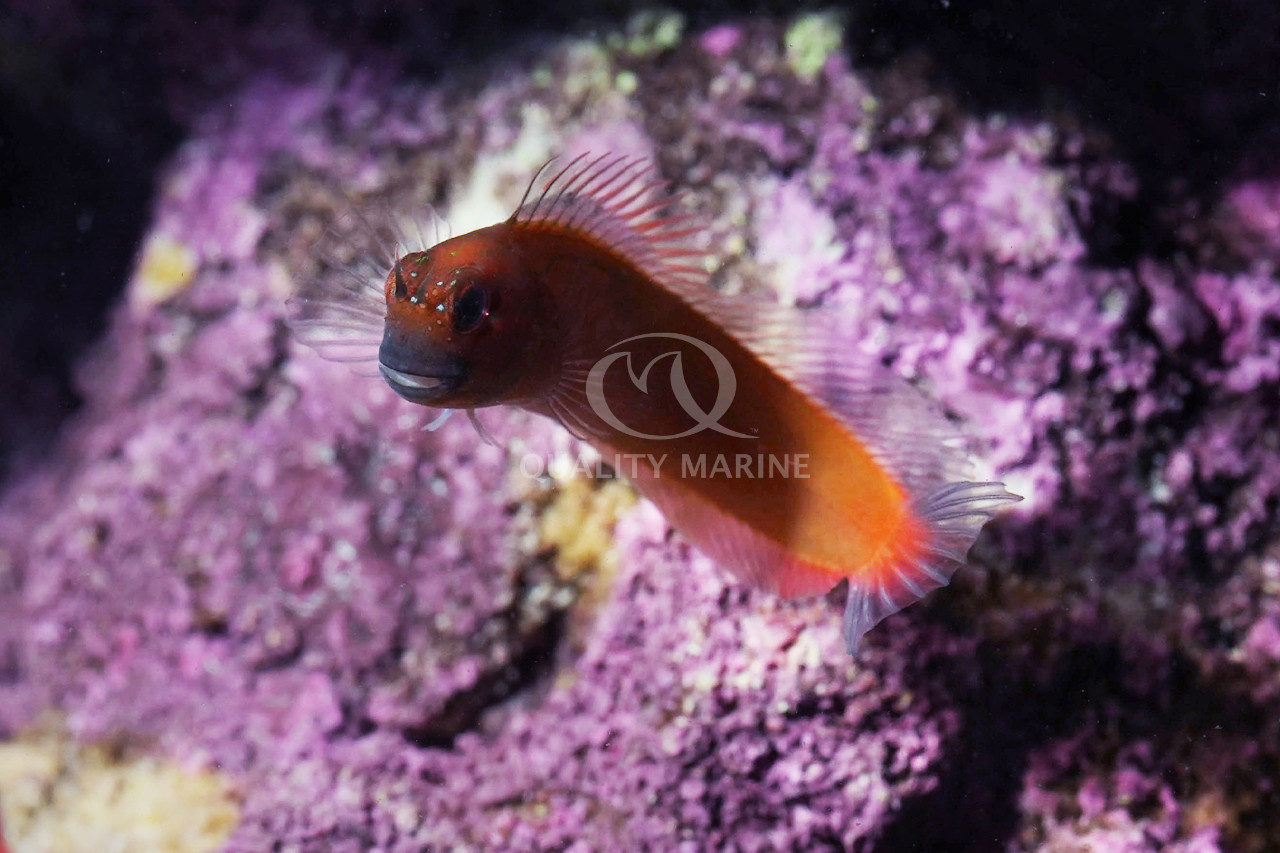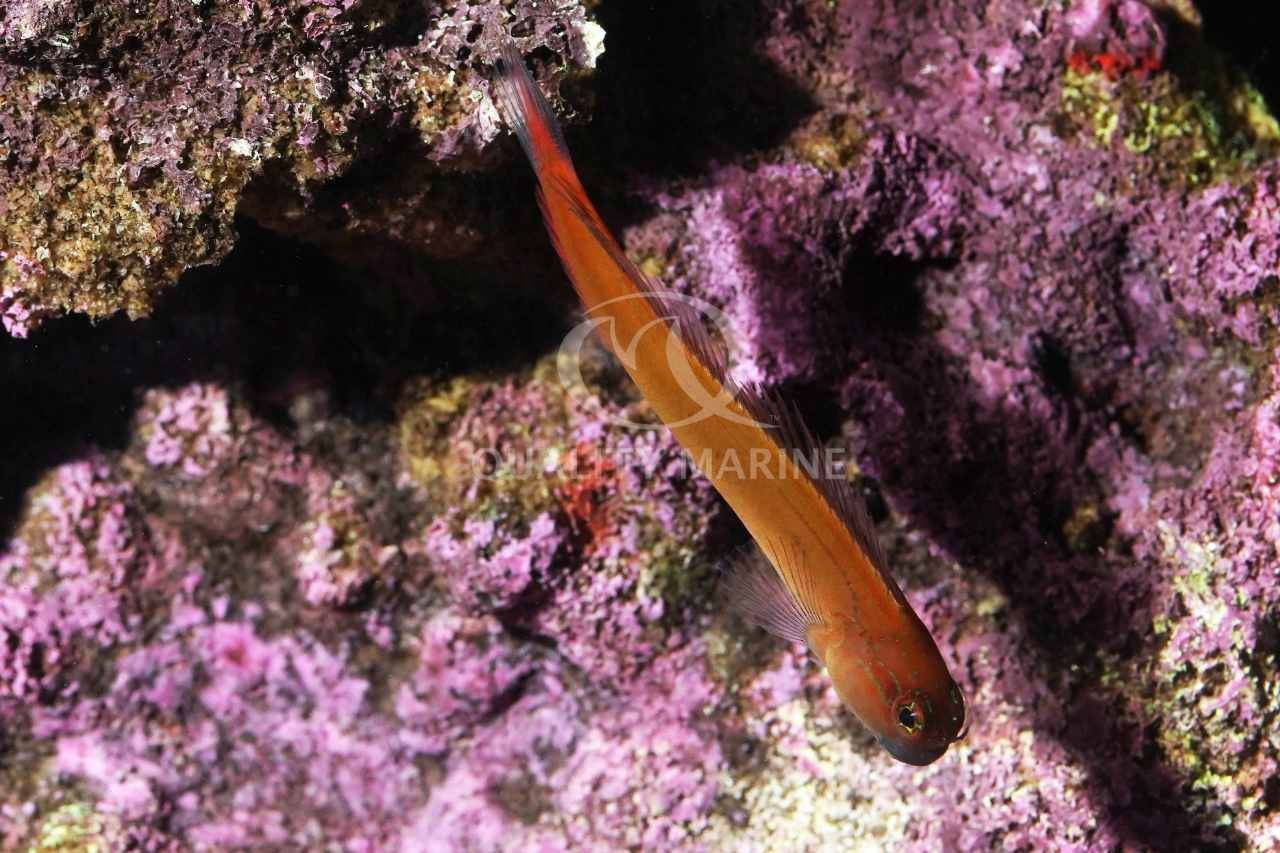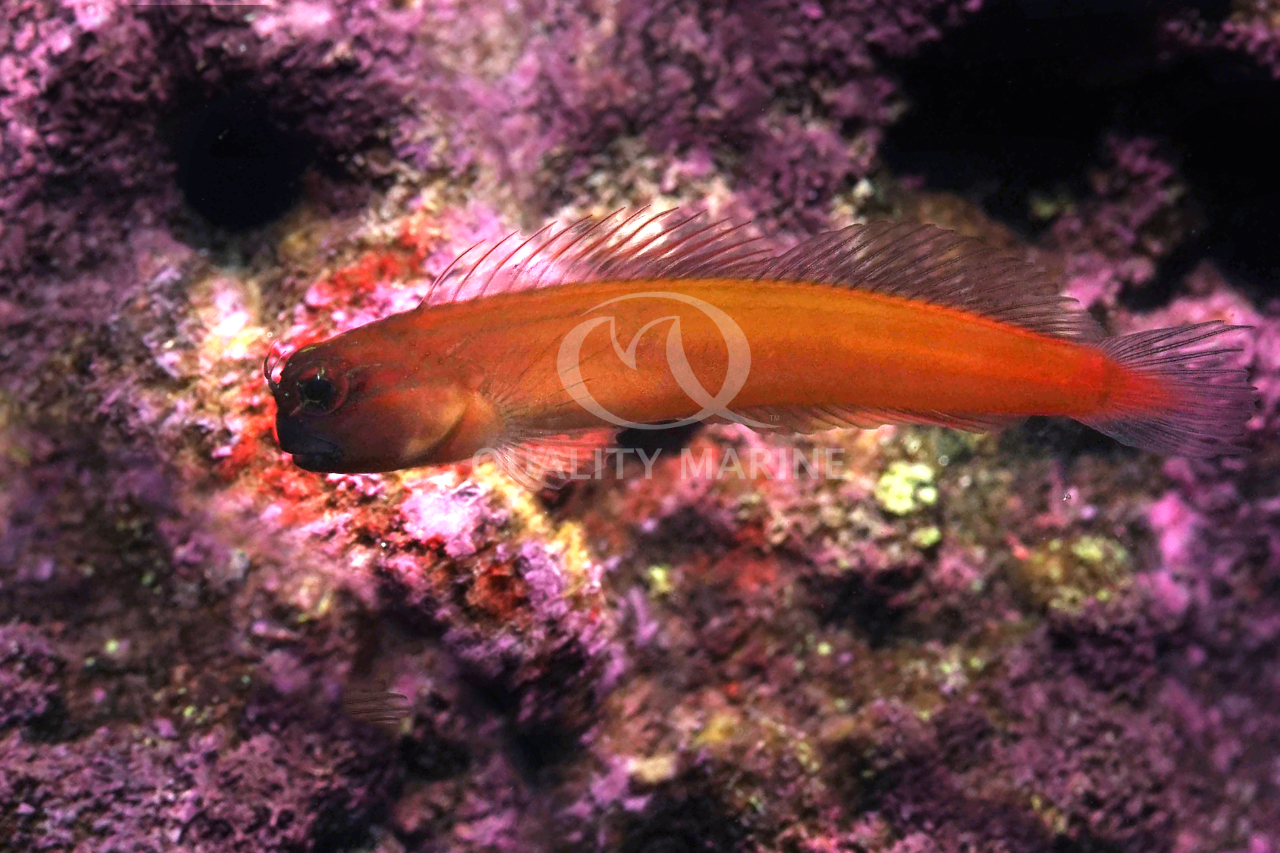QM Labs successfully aquacultures the Gulf Blenny (Ecsenius pulcher)

We're willing to bet you've heard of and seen some of the Ecsenius Blennies before. The genus includes fish like the iconic Midas Blenny, the Bicolor Blenny, the Back Combtooth Blenny and the Pictus Blenny. In recent years some of these amazing fish have even started to be available as aquacultured specimens. There is one Blenny that you may not have heard of before, one that just isn't all that available in North America because it is only found in the Indian Ocean and most often in the Gulf of Oman and African Coast, which can make them challenging to source for a variety of distance, logistical and political reasons. We're talking about the fish commonly referred to as the Gulf Blenny (Ecsenius pulcher).
Now here's the big news... We have aquacultured this unique, amazing and not commonly seen fish here our state-of-the-art hatchery in Los Angeles, California! Next bomb up, we're the first to do it on a commercial level in the United States! Our dedicated team of biologists have been working hard to overcome challenges, so that the Gulf Blenny could be added to our ever-growing list of QM Labs in-house aquacultured species. Right now, we are preparing to have our first ever release of this aquacultured fish, and our hope is that with future success, this occasionally seen fish in the aquarium trade will have the opportunity to grace many more marine fish tanks around the world!
Ecsenius Blennies as a group make amazing aquarium fish. They are almost all beautifully colored uniquely patterned, perfectly sized and get along well with most other fish that don't look like other Blennies. They lack a swim bladder (an organ that most fish have that helps them regulate buoyancy). This means that they are either swimming around, or perched on a rock, or maybe relaxing in a hole with just their faces sticking out. Did we mention they have eyebrows? Oh yeah, nothing adds visual character to a fish like an eyebrow!
 The Gulf Blenny has only one real common name, primarily as a result of its uncommonness in the aquarium world. In China, it gets called the Beautiful Dimetodon (google translation) and the late Jake Adams suggested it be called the Tiger Midas, which would be a fitting name and that's pretty much it. Tiger Midas fits because as adults, the males of this species will have a dark blue/grey head, with a yellow/orange tail, and the tail will have dark vertical tiger stripes throughout. The females will have this same orangish tail and blueish head but will usually lack the stripes. It's worth noting at this point that the juveniles are usually a single color, with their whole body being the bluish grey or shades of fire orange. The colorations observed in the offspring has been more random than other species cultured by QM Labs. Our broodstock pairs are from the wild and have vibrant colored tails, however, our batches do not aways produce colored tails. We're only marketing juveniles at this point.
The Gulf Blenny has only one real common name, primarily as a result of its uncommonness in the aquarium world. In China, it gets called the Beautiful Dimetodon (google translation) and the late Jake Adams suggested it be called the Tiger Midas, which would be a fitting name and that's pretty much it. Tiger Midas fits because as adults, the males of this species will have a dark blue/grey head, with a yellow/orange tail, and the tail will have dark vertical tiger stripes throughout. The females will have this same orangish tail and blueish head but will usually lack the stripes. It's worth noting at this point that the juveniles are usually a single color, with their whole body being the bluish grey or shades of fire orange. The colorations observed in the offspring has been more random than other species cultured by QM Labs. Our broodstock pairs are from the wild and have vibrant colored tails, however, our batches do not aways produce colored tails. We're only marketing juveniles at this point.
Ecsenius pulcher is a small fish, never getting much bigger than four inches long. This equates to needing a fairly diminutive aquarium. Our suggestion is for a tank that is at least 30 gallons, though 40 or 55 would be a better long-term choice, especially if you desire to keep other fish with it. They will love a tank with extensive rockwork for them to swim around, perch on and graze algae from (more on that later). They don't need a substrate and are good candidates for a bare bottom aquarium. Gulf Blennies can dart very quickly when startled, and if this is done in the wrong direction, they can inadvertently jump from the aquarium, so we suggest keeping your display covered.
Gulf Blennies are tropical fish and should be kept in aquariums that are maintained between 72- and 78-degrees Fahrenheit. They are fine in a pretty wide range of salinity, and so your choice here should be more dependent on the other livestock choices you make; anywhere between 1.020 and 1.026 is fine. All marine fish will do best in a nice stable pH between 8.0 and 8.4. Lighting is also immaterial, though dim lighting may help them acclimate more quickly to your tank. They can be easily acclimated to brighter conditions.
In the wild, Ecsenius pulcher is a grazing fish, that loves to mow down a variety of algae, but they also consume a large number of small invertebrates while doing so. It's important to offer both some greenery and some protein in their diet; this process is made much easier in these aquacultured fish because we can rely in part on the high-quality pellets from Nutramar. The Algae and Color Boost Shots offer them an excellent balanced nutrition for their needs, along with frozen preparations such as Gamma Mysis Shrimp and Gamma Brine Shrimp plus Spirulina will provide proper nutrition.

Tank mate wise, Ecsenius pulcher is generally peaceful towards other tank inhabitants but may exhibit territorial behavior towards conspecifics (other Blennies) and/or similarly sized species (looking at you Firefish). They are reef safe and very unlikely to bother corals, clams or fans of any kind. Fish wise, compatible companions may include small to medium-sized reef fish, such as gobies, clownfish, and peaceful wrasses. Take caution with strong anemones like carpets as they might be mistaken as a nice place for the Blenny to perch and they could end up as a meal for the anemone. Avoid housing them with aggressive or predatory species that may harass or prey upon the Blenny like Lionfish, Groupers and the like.
Right now, is your chance to obtain one of the most beautiful and rare in the aquarium trade Blennies to ever grace a North American Aquarium. The Aquacultured Gulf Blenny is the perfect showpiece fish for smaller tanks and an unreal addition to larger peaceful community and reef tanks. Their engaging personality, incredible color and endlessly interesting behaviors make them unique among aquarium fish, even if they weren't this rare! Head to your Local Fish Store, and I mean fast, and ask them about getting your Aquacultured Ecsenius pulcher from Quality Marine today!